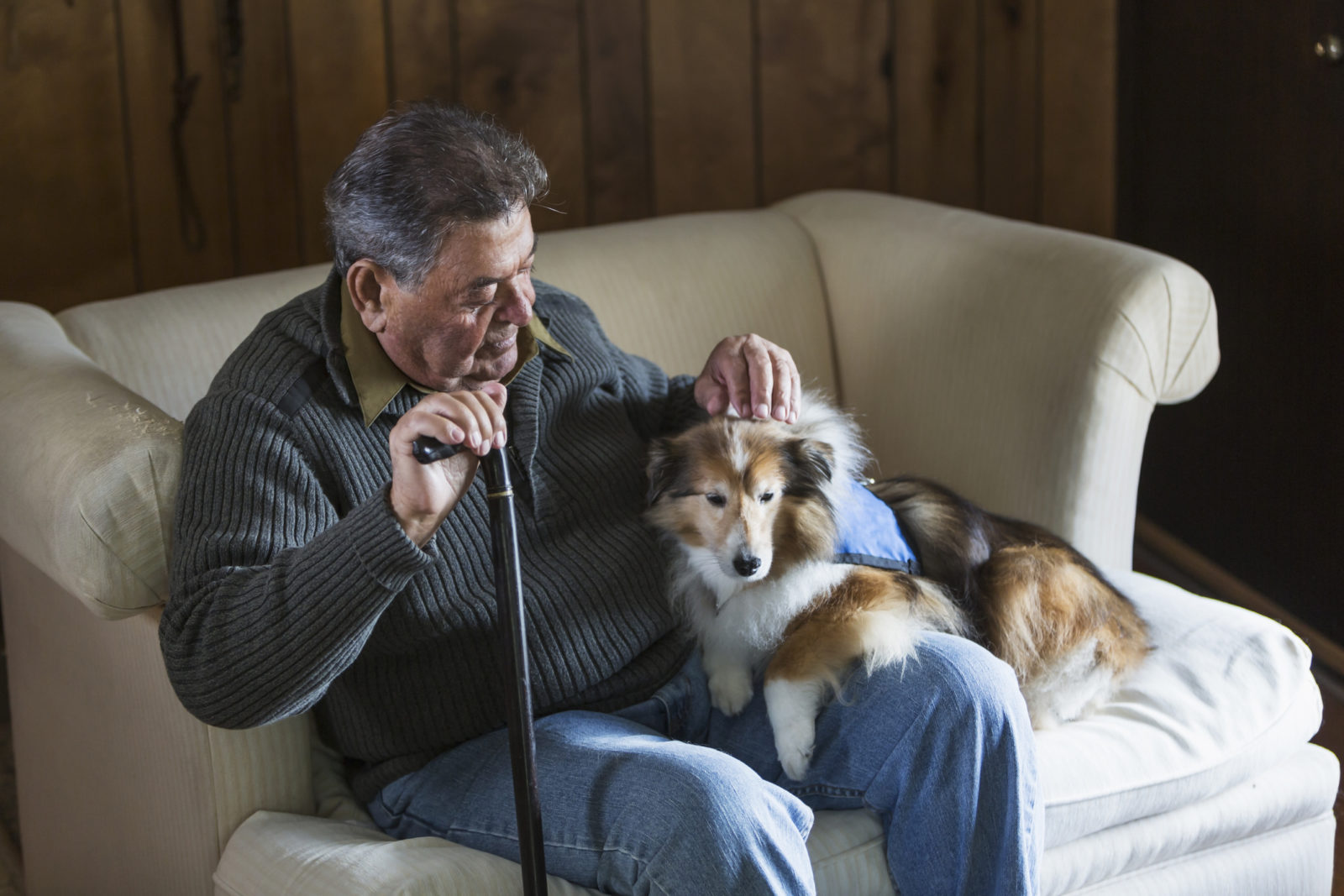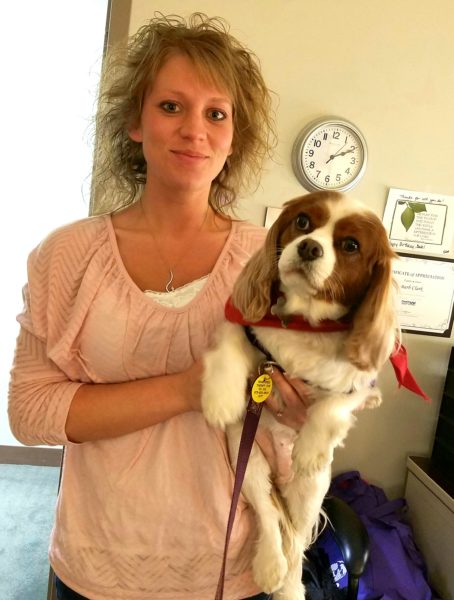Pets Provide Powerful Health Benefits

October is National Adopt a Shelter Dog Month. In addition to being a humanitarian act that benefits the adopted dog, research shows that owning a dog may provide numerous health benefits for its owner. Many humans can attest about their animal’s ability to provide joy, lift one’s spirits after a hard day and even create a purpose in life. Science is beginning to take a hard look at what this bond means for human health and well-being. Research has shown that when humans and dogs interact with each other, oxytocin – a hormone that helps with bonding – increases in both subjects.
According the Centers for Disease Control and Prevention (CDC), owning a pet may have the following health benefits:
- Decrease blood pressure
- Lower cholesterol and triglyceride levels
- Reduce feelings of loneliness
- Increase opportunities for exercise and getting outdoors
- Improve opportunities for socialization
According to Glenn N. Levine, M.D., professor at Baylor College of Medicine in Houston, “pet ownership, particularly dog ownership, is probably associated with a decreased risk of heart disease.” Although they didn’t go so far as to say that owning a pet directly attributed to the lower risk, the statement noted research, which shows:
- Dog owners were 54 percent more likely to get the recommended level of physical activity than non-dog owners.
- Owning pets may be associated with lower blood pressure, cholesterol levels and obesity.
- Pets can have a positive effect on the body’s reactions to stress.
One of the possible reasons that pet owners are healthier is that having a dog provides a reason to go walking. A study by the University of Missouri discovered that the act of walking a dog is associated with lower body mass index, fewer doctor visits, more frequent exercise and an increase in social benefits for seniors.
“Our results showed that dog ownership and walking were related to increases in physical health among older adults,” said Rebecca Johnson, a professor at the MU College of Veterinary Medicine. “These results can provide the basis for medical professionals to recommend pet ownership for older adults and can be translated into reduced health care expenditures for the aging population.”
Studies with Alzheimer’s patients have shown that interaction with animals can reduce agitation, increase positive social behavior (smiling, laughing, and talking) and improve appetites. A pilot program in Germany with nursing home residents living with dementia showed that participants in animal-assisted therapy sessions showed improved verbal communication and attentiveness. In a study conducted at Purdue University, even having an aquarium of fish helped nursing home residents with Alzheimer’s become more relaxed and alert and less likely to become aggressive or wander off. That’s why animals are now commonly used for therapeutic purposes in hospitals, senior living communities, and even in hospice settings.
Unfortunately, as we age, owning a pet is not always a viable option. Caring for a dog takes a great deal of time and energy and many older adults simply aren’t physically able to keep up with a dog’s demands for exercise and activity. That’s where home care can help. An in-home caregiver can help walk and feed the dog and ensure the pet is properly taken care of, allowing it to stay in the home, providing companionship for the senior. A study published in Aging & Mental Health showed that older adults who were pet owners were 36 percent less likely than non-pet owners to describe feelings of loneliness.
Our connection to animals is innate. According to Dr. Ann Berger, a physician and researcher at the National Institutes of Health Clinical Center, “The bond between animals and humans is part of our evolution, and it’s very powerful.” So, adopt a dog, pet a cat, or get an aquarium full of fish. You’ll both benefit from the experience.
 Pet Therapy through Family Centered Hospice
Pet Therapy through Family Centered Hospice
Family Centered Hospice heads a volunteer team that works with patients in hospice care. Two of our volunteers include Hayley Black and Loula Belle, a certified therapy dog. They are celebrating their one-year anniversary with Family Home Health Network this month! Hayley and Loula Belle visit patients at least once a month at both Alden Town Manor in Cicero and Alden Valley Ridge in Bloomingdale. Many patients have developed a special bond with the pet team. Recently, a patient, who was especially fond of Loula Belle, passed away, Hayley planned to attend the visitation. On her way out the door to the service, she felt inspired to take a chance and bring Loula Belle along. Loula Belle was warmly welcomed and the patient’s family was absolutely delighted to finally meet the cute dog that their loved one was always talking about! Family Home Health Network wants to serve more dog lovers among our patients. If you have a certified therapy dog, or know of someone who does, please contact our Volunteer Coordinator, Barb Clark, at 630-812-5764, or bclark@familyhhs.com about becoming a certified hospice pet team volunteer.
![Family Home Health [logo]](https://www.familyhomehealthnetwork.com/wp-content/uploads/sites/250/2017/04/logo-new.png)